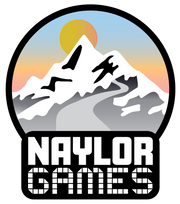1) You CANNOT buy enough still water for your stand
You are going to need to buy more water than you ever thought possible. Constantly telling people about your game is thirsty work, especially in the dry atmosphere of a convention hall. You and your demo team (if you have one) will be getting through a bottle every 2-3 hours each easily to preserve your voice and keep yourselves sufficiently hydrated. While you could choose to buy bottles individually throughout the day, this will be a big time and money sink. What's more, given the German people's love for sparkling water, you are going to have search quite far to get the still variety, which I personally find goes to thirst more effectively. It's much better to stock-up on still water beforehand and plan how you will keep your stand's water supplies topped-up throughout the show. Bear in mind that if you're a first timer, it's unlikely your stand will be big enough to store 4 days' supply.
While you could choose to buy bottles individually throughout the day, this will be a big time and money sink. What's more, given the German people's love for sparkling water, you are going to have search quite far to get the still variety, which I personally find goes to thirst more effectively. It's much better to stock-up on still water beforehand and plan how you will keep your stand's water supplies topped-up throughout the show. Bear in mind that if you're a first timer, it's unlikely your stand will be big enough to store 4 days' supply.
2) Flyers make a great engagement tool, and you will need A LOT of them
This could be my biggest regret of the show. After finding that 50 flyers was enough for 4 smaller shows combined, I figured that 500 had to be enough for Essen, even if it was a lot larger. How wrong I was. 
With potential language barriers, the number of stands on offer, and the speed people are moving around in the outer halls, it's harder to casually engage people in conversation at this show than a smaller domestic affair. At Essen, flyers turned out to be a much more important tool than I had previously appreciated. We rapidly found that gently and silently handing a flyer to someone who looked vaguely interested was a very easy, non-confrontational way of engaging passers-by. As a result this became one of our main strategies on the stand. Consequently, before the end of the day 3, every single flyer was gone. We probably missed a fair few sign-ups on day 4 because of this. Since they're pretty cheap, it's worth always making sure you have more than you need, accepting that the fate of all flyers is that some will never be given away.
3) Being prepared to communicate in German could really help
I can't test this one for sure, but after the show I really regretted having no literature in German or demoers who spoke enough to demo the game, at least partly, in the language. The level of English in Germany is frankly amazing and it is a constant source of shame when compared with people's engagement with other languages here in the UK (very much including me!). But fluency is far from universal and Spiel is not a pure industry tradeshow. It really is an egalitarian public event where the average punter is a board game enthusiast from Germany. These are not all internationally minded industry people where you could expect a high level of English to be very common.

As a result of not being prepared for this, there were quite a few groups who simply couldn't demo Magnate. There were others who couldn't read our flyers or banners clearly. I am convinced the lack of German language materials was why I got quite a few dirty looks at my banners. When triggered-looking, non-English speaking board game fans saw the M word, "Monopoly", in the quote we had from Meeple Like Us they stared at it in revulsion. Not being able to read the full context, they didn't see that the whole point of that quote (which gives a lot of people wry amusement, even if it is a risky word in anglophone board gaming) that the game is implicitly what you would want to play instead (assuming you have any interest in property or building as a theme). Next time, I'll be printing any flyers with German on one face and English on the other. Finding fluent German-speaking demoers is another matter, and a much bigger ask in general. If you're a small anglophone publisher, I wouldn't obsesses over this too much if you aren't lucky enough to know someone.
4) Finding the right demoers and preparing them well is totally worth it
 We didn't prepare everyone equally well though. If demoers don't know a game, especially if it's not a light game, it's just harder for them to be good. This is true even when they're otherwise experienced and demo other games very effectively. A lesson for me for next time is making sure that every demoer has played the game on multiple occasions, really understands the rules, and is taught exactly how to pitch it before they get to the table. This is one area that I think small companies have an implicit advantage. Because small companies are generally only promoting a very few titles (or even one, like me), it's even more likely that your core team are passionate advocates for the specific game(s) already. With the right prep they can consistently perform at the highest level relative to much larger firms.
We didn't prepare everyone equally well though. If demoers don't know a game, especially if it's not a light game, it's just harder for them to be good. This is true even when they're otherwise experienced and demo other games very effectively. A lesson for me for next time is making sure that every demoer has played the game on multiple occasions, really understands the rules, and is taught exactly how to pitch it before they get to the table. This is one area that I think small companies have an implicit advantage. Because small companies are generally only promoting a very few titles (or even one, like me), it's even more likely that your core team are passionate advocates for the specific game(s) already. With the right prep they can consistently perform at the highest level relative to much larger firms.5) Give yourself and your team a break
Spiel is an incredibly full-on experience. At its best it's an electric atmosphere where the senses are overloaded but new delights are in every direction. There's tons of interesting things around every corner, lots of brilliant people to chat to everywhere, and a sense of truly being among your kin. But these pleasures are themselves an incredibly tiring mix. It's no surprise so many people come down with the dreaded "con crud" after the show; the sheer intensity of the event and volume of people you meet is the perfect environment to get ill. Personally, I am pretty sure I stayed on my stand a little too much. I was there pretty much the whole day, everyday. Constantly pitching and discussing your game for 9 hours a day is tiring. If it's all you do throughout the event, you can feel a bit cheated - like you've missed out. Given I only got to demo one game other than my own, that's how I felt this year, even if I did avoid getting ill. It's hard to resist because it is sadly true that someone you'd really like to meet (media person, friend from twitter, or a key supplier for instance) could drop by your stand at any moment, and if you aren't there, you'll miss them. But I think it's still better to accept whatever will be will be and make sure you get at least a few hours away from the stand to enjoy yourself. After all, you will have likely spent a fair amount of money on the whole thing - so why not enjoy it? It's also a good argument for making sure you have a big enough team that you have proper coverage when you walk away from the stand. Taking breaks also goes for your team. I stuck with a system of having demoers only on half-days and I have to say that this worked very well. Everyone who wasn't also volunteering for someone else got plenty of time to enjoy the con and kept their energy levels up throughout the demo; communicating the maximum passion to potential backers. To my mind this approach is simply the fair one on them. If these folk aren't paid, then it's really important they get their quid pro quo for their time: an opportunity to really enjoy the whole experience.6) Get your logistics in order - work out where you will be and when
 While the van was also very handy for shifting stuff on set-up and dismantling days, we probably could have gotten even more use out of it. Our approach to restocking food and water supplies was a bit haphazard, as was our original plan for driving around. Luckily a member of the East Street team, Trevor, was very happy to act as driver to sort us out most of the time, as opposed to doing much sightseeing or demoing. We lucked out here, but it's wise not to rely on such luck. Really, we should have planned this out fully beforehand.
While the van was also very handy for shifting stuff on set-up and dismantling days, we probably could have gotten even more use out of it. Our approach to restocking food and water supplies was a bit haphazard, as was our original plan for driving around. Luckily a member of the East Street team, Trevor, was very happy to act as driver to sort us out most of the time, as opposed to doing much sightseeing or demoing. We lucked out here, but it's wise not to rely on such luck. Really, we should have planned this out fully beforehand.7) Have a slick sign-up process
 One other way increase sign-ups is to incentivise them with something. We gave a free resin house to people who demoed the game; one for every unique email we received. People loved the little houses and they proved quite effective in encouraging the unsure to sign-up.
One other way increase sign-ups is to incentivise them with something. We gave a free resin house to people who demoed the game; one for every unique email we received. People loved the little houses and they proved quite effective in encouraging the unsure to sign-up.

Wonderful content with helpful information and easy-to-read explanations. I really appreciate the clarity and structure of this article. It is informative and enjoyable to read. Keep sharing more quality posts.
https://waktogel303.jimdofree.com/tech/
Leave a comment